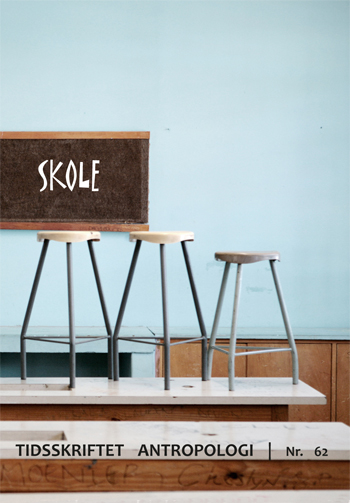Håbets Fælde? Fortryllelse og universel skolegang i Uganda og Tanzania
DOI:
https://doi.org/10.7146/ta.v0i62.27357Abstract
Lotte Meinert & Mette Kølner: The Trap of Hope? Enchantment and Universal Education in Uganda and Tanzania
This article challenges the apparent global consensus, hope and belief in schooling as a primary tool for making the world a better place. Schooling is enchanting as an idea, because it entails a promise of improvement in the future – at political as well as individual levels. Based on missionary accounts and empirical cases of schooling in Uganda and Tanzania, we attempt to identify the enchantment and seduction that lures people into what appears to be moral traps. Despite endless examples of people who go through schooling without being able to materialise the hope that schooling will lead to a way out of poverty, why do parents keep sending children to school and why do children keep insisting on the importance of education? To answer this question we are inspired by Alfred Gell’s thoughts about enchantment (1992) and traps (1996). We point to the problems and social dynamics that are set in motion when the future cannot fulfill the promise of being the “modern and salaried citizens” which children start believing in as the only proper form of personhood during their school years. An important argument in the article is that the enchantment and entrapment of schooling is dynamic. It is not static and totally blinding, but a continuous and contested social process fluctuating between trust and distrust, enchantment and disenchantment. The hope and belief in education varies over time, during changing political discourses, historical periods and in individuals’ and families’ lives depending on experience, possibilities and structural limitations. We attempt to grasp the ambivalence and apparent contradictions that are inherent in schooling locally, by drawing a nuanced picture of the magical as well as the hopeless sides of schooling in East Africa.
Keywords: Schooling, enchantment, hope, trap, Uganda, Tanzania.
Downloads
Published
How to Cite
Issue
Section
License
Ophavsretten til artiklerne i Tidsskriftet Antropologi tilfalder forfatteren.
Artikler publiceret i Tidsskriftet Antropologi må citeres, downloades og videresendes for ikke-kommerciel brug, under forudsætning af normal akademisk reference til forfatter(e) samt tidsskrift, årgang, nummer og sider. Artiklerne må kun genudgives med eksplicit tilladelse fra forfatter(e) og tidsskriftet.


